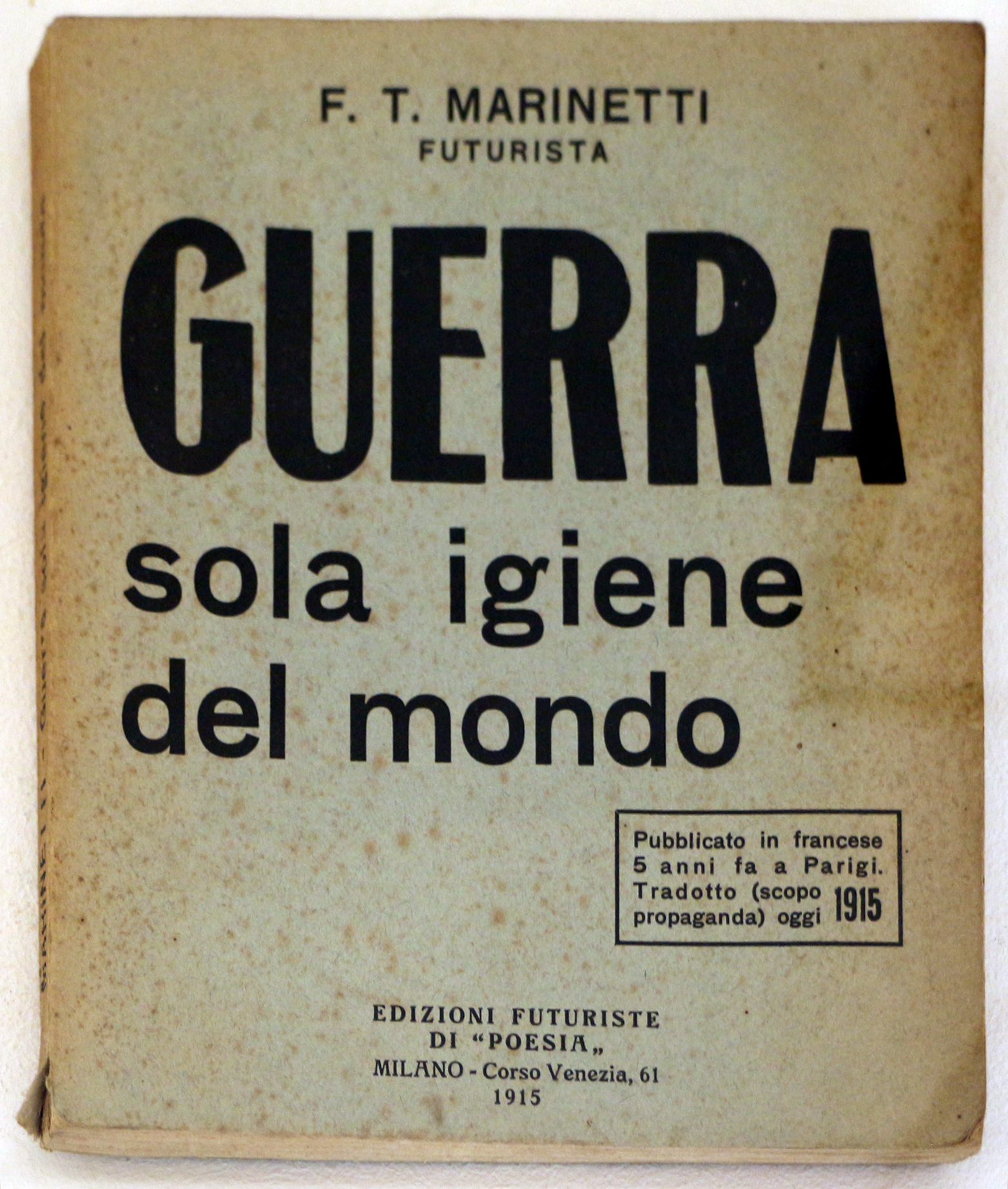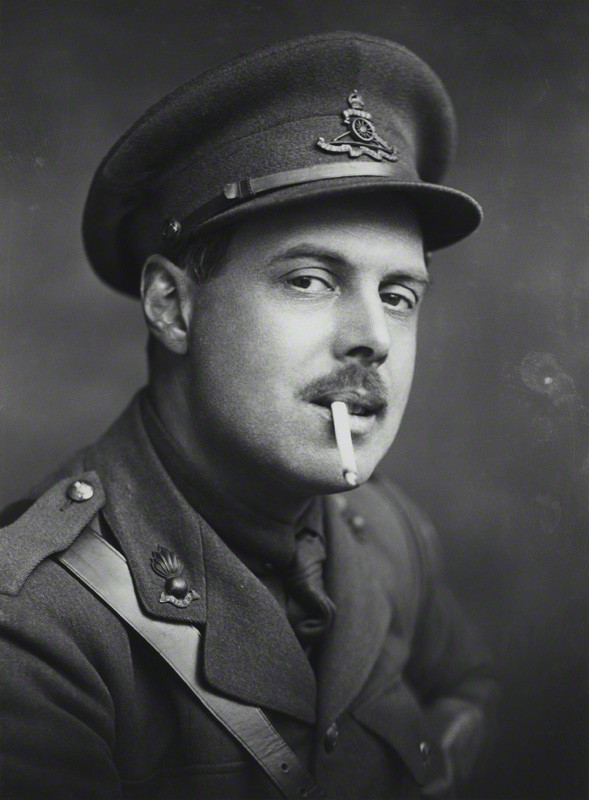|
Zang Tumb Tumb
''Zang Tumb Tumb'' (usually referred to as ''Zang Tumb Tuuum'') is a sound poem and concrete poem written by Filippo Tommaso Marinetti, an Italian futurist. It appeared in excerpts in journals between 1912 and 1914, when it was published as an artist's book in Milan. It is an account of the Battle of Adrianople, which he witnessed as a reporter for ''L'Intransigeant''. The poem uses ''Parole in libertà'' (words in freedom; creative typography) and other poetic impressions of the events of the battle, including the sounds of gunfire and explosions. The work is now seen as a seminal work of modernist art, and an enormous influence on the emerging culture of European avant-garde print. " hemasterpiece of Words-in-freedom and of Marinetti’s literary career was the novel ''Zang Tumb Tuuum''... the story of the siege by the Bulgarians of Turkish Adrianople in the Balkan War, which Marinetti had witnessed as a war reporter. The dynamic rhythms and onomatopoetic possibilities that the ... [...More Info...] [...Related Items...] OR: [Wikipedia] [Google] [Baidu] |
Futurist Political Party
The Futurist Political Party ( it, Partito Politico Futurista) was an Italian political party founded in 1918 by Filippo Tommaso Marinetti as an extension of the futurist artistic and social movement. The party had a radical program which included promoting gender parity and abolishing marriage, inheritance, military service and secret police. The party was absorbed into the Fasci Italiani di Combattimento in 1919. Ideology ''Futurist Democracy'' * The abolition of marriage, with children raised by the state with funds raised by a tax on free love. * Bureaucratic decentralization and abolition of seniority in state careers. * "Technical government without Senate", i.e. a youth council made up of a dozen people under 30 years, elected by universal suffrage direct. * Land reform similar to that of Henry George. * Gender equality in employment and participation in political life. * Creation of "schools of courage and patriotism", which eventually became the Opera Nazionale Balil ... [...More Info...] [...Related Items...] OR: [Wikipedia] [Google] [Baidu] |
Wyndham Lewis
Percy Wyndham Lewis (18 November 1882 – 7 March 1957) was a British writer, painter and critic. He was a co-founder of the Vorticist movement in art and edited ''BLAST,'' the literary magazine of the Vorticists. His novels include ''Tarr'' (1918) and ''The Human Age'' trilogy, composed of ''The Childermass'' (1928), ''Monstre Gai'' (1955) and ''Malign Fiesta'' (1955). A fourth volume, titled ''The Trial of Man'', was unfinished at the time of his death. He also wrote two autobiographical volumes: '' Blasting and Bombardiering'' (1937) and ''Rude Assignment: A Narrative of my Career Up-to-Date'' (1950). Biography Early life Lewis was born on 18 November 1882, reputedly on his father's yacht off the Canadian province of Nova Scotia.Richard Cork"Lewis, (Percy) Wyndham (1882–1957)" ''Oxford Dictionary of National Biography'', Oxford University Press, 2004. His English mother, Anne Stuart Lewis (née Prickett), and American father, Charles Edward Lewis, separated about 1893. ... [...More Info...] [...Related Items...] OR: [Wikipedia] [Google] [Baidu] |
Vorticism
Vorticism was a London-based Modernism, modernist art movement formed in 1914 by the writer and artist Wyndham Lewis. The movement was partially inspired by Cubism and was introduced to the public by means of the publication of the Vorticist manifesto in ''Blast (magazine), Blast'' magazine. Familiar forms of representational art were rejected in favour of a geometric style that tended towards a hard-edged Abstract art, abstraction. Lewis proved unable to harness the talents of his disparate group of avant-garde artists; however, for a brief period Vorticism proved to be an exciting intervention and an artistic riposte to Marinetti's Futurism and the post-impressionism of Roger Fry's Omega Workshops. Vorticist paintings emphasised 'modern life' as an array of bold lines and harsh colours drawing the viewer's eye into the centre of the canvas and vorticist sculpture created energy and intensity through 'direct carving'. Prelude to Vorticism In the summer of 1913 Roger Fry, wi ... [...More Info...] [...Related Items...] OR: [Wikipedia] [Google] [Baidu] |
CRW Nevinson
Christopher Richard Wynne Nevinson (13 August 1889 – 7 October 1946) was an English figure and landscape painter, etcher and lithographer, who was one of the most famous war artists of World War I. He is often referred to by his initials C. R. W. Nevinson, and was also known as Richard. Nevinson studied at the Slade School of Art under Henry Tonks and alongside Stanley Spencer and Mark Gertler. When he left the Slade, Nevinson befriended Marinetti, the leader of the Italian Futurists, and the radical writer and artist Wyndham Lewis, who founded the short-lived Rebel Art Centre. However, Nevinson fell out with Lewis and the other 'rebel' artists when he attached their names to the Futurist movement. Lewis immediately founded the Vorticists, an avant garde group of artists and writers from which Nevinson was excluded. At the outbreak of World War I, Nevinson joined the Friends' Ambulance Unit and was deeply disturbed by his work tending wounded French and British sold ... [...More Info...] [...Related Items...] OR: [Wikipedia] [Google] [Baidu] |
Lira
Lira is the name of several currency units. It is the current currency of Turkey and also the local name of the currencies of Lebanon and of Syria. It is also the name of several former currencies, including those of Italy, Malta and Israel. The term originates from the value of a Roman pound ( la, libra, about 329g, 10.58 troy ounces) of high purity silver. The libra was the basis of the monetary system of the Roman Empire. When Europe resumed a monetary system, during the Carolingian Empire, the Roman system was adopted. The Roman denominations ''librae'', ''solidi'', ''denarii'' were used (becoming known in England as £sd). Particularly this system was kept during the Middle Ages and Modern Age in England, France, and Italy. In each of these countries the ''libra'' was translated into local language: pound in England, livre in France, ''lira'' in Italy. The Venetian lira was one of the currencies in use in Italy and due to the economic power of the Venetian Republic ... [...More Info...] [...Related Items...] OR: [Wikipedia] [Google] [Baidu] |
BLAST (magazine)
''Blast'' was the short-lived literary magazine of the Vorticist movement in Britain. Two editions were published: the first on 2 July 1914 (dated 20 June 1914, but publication was delayed)Black (2004), p. 100 and featured a bright pink cover, referred to by Ezra Pound as the "great MAGENTA cover'd opusculus"; and the second a year later on 15 July 1915. Both editions were written primarily by Wyndham Lewis.Pfannkuchen (2005) The magazine is emblematic of the modern art movement in England, and recognised as a seminal text of pre-war 20th-century modernism. The magazine originally cost 2/6. Background When the Italian futurist Filippo Tommaso Marinetti visited London in 1910, as part of a series of well-publicised lectures aimed at galvanizing support across Europe for the new Italian avant-garde, his presentation at the Lyceum Club, in which he addressed his audience as "victims of ... traditionalism and its medieval trappings", electrified the assembled avant-garde. ... [...More Info...] [...Related Items...] OR: [Wikipedia] [Google] [Baidu] |
World War I
World War I (28 July 1914 11 November 1918), often abbreviated as WWI, was List of wars and anthropogenic disasters by death toll, one of the deadliest global conflicts in history. Belligerents included much of Europe, the Russian Empire, the United States, and the Ottoman Empire, with fighting occurring throughout Europe, the Middle East, Africa, the Pacific Ocean, Pacific, and parts of Asia. An estimated 9 million soldiers were killed in combat, plus another 23 million wounded, while 5 million civilians died as a result of military action, hunger, and disease. Millions more died in Genocides in history (World War I through World War II), genocides within the Ottoman Empire and in the Spanish flu, 1918 influenza pandemic, which was exacerbated by the movement of combatants during the war. Prior to 1914, the European great powers were divided between the Triple Entente (comprising French Third Republic, France, Russia, and British Empire, Britain) and the Triple A ... [...More Info...] [...Related Items...] OR: [Wikipedia] [Google] [Baidu] |
Benito Mussolini
Benito Amilcare Andrea Mussolini (; 29 July 188328 April 1945) was an Italian politician and journalist who founded and led the National Fascist Party. He was Prime Minister of Italy from the March on Rome in 1922 until his deposition in 1943, and "Duce" of Italian Fascism from the establishment of the Italian Fasces of Combat in 1919 until his execution in 1945 by Italian partisans. As dictator of Italy and principal founder of fascism, Mussolini inspired and supported the international spread of fascist movements during the inter-war period. Mussolini was originally a socialist politician and a journalist at the ''Avanti!'' newspaper. In 1912, he became a member of the National Directorate of the Italian Socialist Party (PSI), but he was expelled from the PSI for advocating military intervention in World War I, in opposition to the party's stance on neutrality. In 1914, Mussolini founded a new journal, ''Il Popolo d'Italia'', and served in the Royal Italian Army durin ... [...More Info...] [...Related Items...] OR: [Wikipedia] [Google] [Baidu] |
The Founding Manifesto Of Futurism
''The'' () is a grammatical article in English, denoting persons or things that are already or about to be mentioned, under discussion, implied or otherwise presumed familiar to listeners, readers, or speakers. It is the definite article in English. ''The'' is the most frequently used word in the English language; studies and analyses of texts have found it to account for seven percent of all printed English-language words. It is derived from gendered articles in Old English which combined in Middle English and now has a single form used with nouns of any gender. The word can be used with both singular and plural nouns, and with a noun that starts with any letter. This is different from many other languages, which have different forms of the definite article for different genders or numbers. Pronunciation In most dialects, "the" is pronounced as (with the voiced dental fricative followed by a schwa) when followed by a consonant sound, and as (homophone of the archaic pron ... [...More Info...] [...Related Items...] OR: [Wikipedia] [Google] [Baidu] |
The Doctrine Of Fascism
"The Doctrine of Fascism" ( it, "La dottrina del fascismo", italics=no) is an essay attributed to Benito Mussolini. In truth, the first part of the essay, entitled "" (), was written by the Italian philosopher Giovanni Gentile, while only the second part ("", ) is the work of Mussolini himself. Overview Although written in 1927 by Mussolini, with the help of Giovanni Gentile, it was first published in the 14th volume of the '' Italian Encyclopedia'' (''Enciclopedia Italiana''), published in 1932, as the first section of a lengthy entry on "Fascismo" (). The entire entry on fascism spans pages 847–884 of the ''Enciclopedia Italiana'', and includes numerous photographs and graphic images. The entry starts on page 847 and ends on 851 with the credit line "Benito Mussolini." All subsequent translations of "The Doctrine of Fascism" are from this work. A key concept of the Mussolini essay was that fascism was a rejection of previous models: "Granted that the nineteenth century was t ... [...More Info...] [...Related Items...] OR: [Wikipedia] [Google] [Baidu] |


.jpg)

.png)
